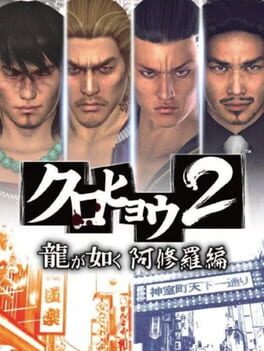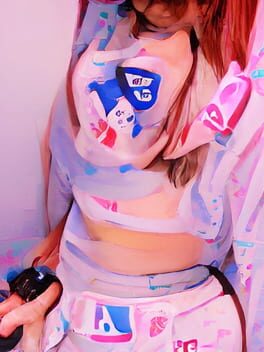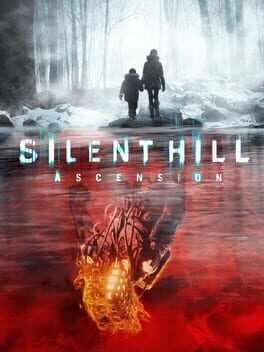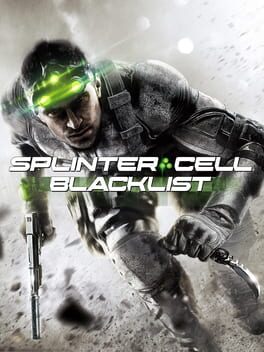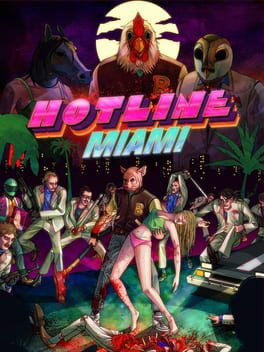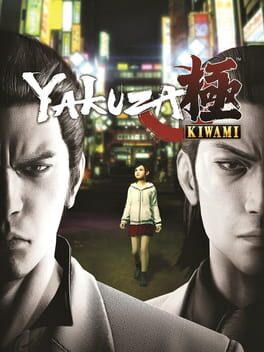heartattack
23 reviews liked by heartattack
Defend your Title
Ashura-Hen is the direct sequel to Kurohyou which I also made a review, you can find it here. I'll cover only some key aspects this game has a sequel. So to avoid any future redundancies, check out my review on Kurohyou.
Ukyo Tatsuya, now as a changed man after the events of the first game ends up fighting his way into the scene and make a name for himself leaving the illegal underground colliseum known as Dragon Heat behind. Now under the control of his agency; it's just a matter of time Tatsuya finally start to find peace and comfort in a little gym located in Kamurocho. But something is missing, who was he fighting for now? This is where Tatsuya finds out Dragon Heat was in deep trouble, the place that made him change, grow and evolve. Ashura-Hen as a sequel could've gone a lot of places narratively speaking. This time, unlike just looking for the next big thing it clings itself to the idea of protecting what made himself change. Same case with Kazuma Kiryu rejecting being the Fourth Chairman of the Tojo Clan. To put it simple, Haruka is what Dragon Heat is to Tatsuya; his reason to keep living.
It follows more or less the same gameplay structure as it's prequel. This time the map is not only limited to the same old Kamurocho but Sotenbori makes a return after being absent since it's debut in Yakuza 2, back in 2006. You won't find many surprises, as the cities are nothing but 2D background to save on processing power of the already aged PSP. So, walking around the cities is still a drag and can get boring fast. On the other hand the actual combat saw some changes and now is more centered around co-op fights rather than tackle it alone at least during street fights. Enemies wll come in hordes and they make most Yakuza thugs pale in comparasion. They're tough nuts to crack, specially on Hard Mode and the best strategy down the line is to call whoever you had recruited before. So partnerts are no longer tied to story events and that's a plus, but the game is made with that very system in mind. It counteracts a problem, giving you a little more leverage than normal, make sure to come prepared before each fight. Lowering the difficulty would be a good idea in case street fight get the best of you, don't be ashamed to lower it to Easy.
What really does sell this game isn't the story of Dragon Heat or Tatsuya itself. But it is the main villain that is well on pair with the likes of Yakuza 3 and even Lost Judgment. Is a tale as old as time; a story of revenge with a common enemy, approached differently between both the hero and the villain. The rest of the story up to that point doesn't feel that important oddly enough, but the fights on Millenium Tower always deliver no matter the game we're in.
The story might be one of the weakest aspects of this game. It plays safe as it's not as involved as the first one. Goes all over the place with moments you won't care about much for at times, as they don't add anything substantial to the main plot. Even side character stories get in the way mid-adventure, can you believe that? It doesn't feel natural. The main plot surrounding the Ashura is fine, but the overall pace gets dragged by side-character arc nonsense.
Recommended for any hardcore Yakuza fan looking for something familiar, with a refreshing intense combat. If you liked the first, there is no reason to not play this one.
Ashura-Hen is the direct sequel to Kurohyou which I also made a review, you can find it here. I'll cover only some key aspects this game has a sequel. So to avoid any future redundancies, check out my review on Kurohyou.
Ukyo Tatsuya, now as a changed man after the events of the first game ends up fighting his way into the scene and make a name for himself leaving the illegal underground colliseum known as Dragon Heat behind. Now under the control of his agency; it's just a matter of time Tatsuya finally start to find peace and comfort in a little gym located in Kamurocho. But something is missing, who was he fighting for now? This is where Tatsuya finds out Dragon Heat was in deep trouble, the place that made him change, grow and evolve. Ashura-Hen as a sequel could've gone a lot of places narratively speaking. This time, unlike just looking for the next big thing it clings itself to the idea of protecting what made himself change. Same case with Kazuma Kiryu rejecting being the Fourth Chairman of the Tojo Clan. To put it simple, Haruka is what Dragon Heat is to Tatsuya; his reason to keep living.
It follows more or less the same gameplay structure as it's prequel. This time the map is not only limited to the same old Kamurocho but Sotenbori makes a return after being absent since it's debut in Yakuza 2, back in 2006. You won't find many surprises, as the cities are nothing but 2D background to save on processing power of the already aged PSP. So, walking around the cities is still a drag and can get boring fast. On the other hand the actual combat saw some changes and now is more centered around co-op fights rather than tackle it alone at least during street fights. Enemies wll come in hordes and they make most Yakuza thugs pale in comparasion. They're tough nuts to crack, specially on Hard Mode and the best strategy down the line is to call whoever you had recruited before. So partnerts are no longer tied to story events and that's a plus, but the game is made with that very system in mind. It counteracts a problem, giving you a little more leverage than normal, make sure to come prepared before each fight. Lowering the difficulty would be a good idea in case street fight get the best of you, don't be ashamed to lower it to Easy.
What really does sell this game isn't the story of Dragon Heat or Tatsuya itself. But it is the main villain that is well on pair with the likes of Yakuza 3 and even Lost Judgment. Is a tale as old as time; a story of revenge with a common enemy, approached differently between both the hero and the villain. The rest of the story up to that point doesn't feel that important oddly enough, but the fights on Millenium Tower always deliver no matter the game we're in.
The story might be one of the weakest aspects of this game. It plays safe as it's not as involved as the first one. Goes all over the place with moments you won't care about much for at times, as they don't add anything substantial to the main plot. Even side character stories get in the way mid-adventure, can you believe that? It doesn't feel natural. The main plot surrounding the Ashura is fine, but the overall pace gets dragged by side-character arc nonsense.
Recommended for any hardcore Yakuza fan looking for something familiar, with a refreshing intense combat. If you liked the first, there is no reason to not play this one.
I've come to the conclusion ideologies are a sort of mental poison which utterly stifled any actual thought in its victims. Case in point this slapdash discord rant masquerading as an essay. In this case it seems the primary game design ethos of the author is escapism. They want to escape and exist in another world and mechanics serve as a barrier to that. This betrayed in the cliche 2000s teenage girl writing style which show a desire to exist as someone of a different age in a different time (your wannabe 2000s cringe culture is dead sparkle dog bimbo brainrot disease aesthetic isn't unique its an epidmic).
This leads to some baffling claims like talking about how comfy the world of the half life games, a military installation and eastern Europe respectively, are. None of the locations except the alien planets are particularly unrealistic in half life the author could always just fly over to eastern Europe and see some brutalist architecture. Ultimately its not the locations in games OP wants to escape into but into the simplistic feeling of a game. An abstraction of reality where hunger, drinking, insecurities, ugliness, and complexity don't exist. Where cutting grass and slashing slimes can give you enough honest days pay to keep you going. The pixels and polygons smooth over so much of the harshness of reality making even a dystopian world like half life seem comfy in comparison to the real world. Its like Japanese anime where a common plot trope is someone killing themselves and being transported to a magic world just like mmorpgs and jrpgs the protagonist/watcher are familar with. Its not an escape to a new an unseen world (like many past fish out of water stories) but instead an escape into a simple and familiar world. Its creepy and shows a lack of imagination (I seriously question the normalization of suicide and sexually charged fanservice in a country with a high suicide rate and gender segregated train cars) . You have only one life and one chance in this world don't waste it wishing you were something else in a world of 5th gen polygons. I promise the real world is not as scary as your toxic online communities and brainrot ideologies have made you think.
This leads to some baffling claims like talking about how comfy the world of the half life games, a military installation and eastern Europe respectively, are. None of the locations except the alien planets are particularly unrealistic in half life the author could always just fly over to eastern Europe and see some brutalist architecture. Ultimately its not the locations in games OP wants to escape into but into the simplistic feeling of a game. An abstraction of reality where hunger, drinking, insecurities, ugliness, and complexity don't exist. Where cutting grass and slashing slimes can give you enough honest days pay to keep you going. The pixels and polygons smooth over so much of the harshness of reality making even a dystopian world like half life seem comfy in comparison to the real world. Its like Japanese anime where a common plot trope is someone killing themselves and being transported to a magic world just like mmorpgs and jrpgs the protagonist/watcher are familar with. Its not an escape to a new an unseen world (like many past fish out of water stories) but instead an escape into a simple and familiar world. Its creepy and shows a lack of imagination (I seriously question the normalization of suicide and sexually charged fanservice in a country with a high suicide rate and gender segregated train cars) . You have only one life and one chance in this world don't waste it wishing you were something else in a world of 5th gen polygons. I promise the real world is not as scary as your toxic online communities and brainrot ideologies have made you think.
Dragon's Dogma II
2024
So I waited 12 years for this. I remember getting dd1 back at gamestop because I heard it was like skyrim but also kinda like dark souls....didn't click at first but after a bit. It became one of my favorite action rpgs to go through time and time again.
Now does this one hold up to the OG? I'd say yes. It for sure does, the gameplay is impeccable this time around, and some classes feel a lot better(well warrior and wayfarer at least). But it does feel like it's a bit of a stumble of a success.
The story is lackluster, which is on par with the original but even that felt like it held more weight. Also the lack of enemies is pretty disappointing, there are variations but overall it's pretty samey.
The endgame rocks though, like post game shit. I really wish it was more fleshed out and didn't feel so tacked on....
Now let's hope we get a dark arisen like dlc. Then this will probably be a 5/5.
Now does this one hold up to the OG? I'd say yes. It for sure does, the gameplay is impeccable this time around, and some classes feel a lot better(well warrior and wayfarer at least). But it does feel like it's a bit of a stumble of a success.
The story is lackluster, which is on par with the original but even that felt like it held more weight. Also the lack of enemies is pretty disappointing, there are variations but overall it's pretty samey.
The endgame rocks though, like post game shit. I really wish it was more fleshed out and didn't feel so tacked on....
Now let's hope we get a dark arisen like dlc. Then this will probably be a 5/5.
For the most part, Kurohyou 2 is a direct improvement on most of what Kurohyou 1 has to offer. There are a few more styles this time, and towards the end you get a style that allows you to combine attacks from other styles (although you really don't have too much freedom in this). Each style comes with more drawbacks than in the first game, however, meaning each one stands out a bit more, but not always in a good way. For the most part, towards the end of the game, I had little issue using any style due to having a fairly high level, but early on the first few styles don't do a lot to help you compared to some of the ones unlocked later. I do like that this mechanic was added to make different styles have different uses outside of moveset alone, but it is a bit frustrating until you can either negate some of the negative effects or level up the stats you need to properly use them (especially stamina). The styles themselves are a lot more convoluted this time around. The first game basically had 3/4 tiers of styles, where mastering 2 styles from a tier typically meant you gained a style from the next tier. This is not the case in Kurohyou 2, however, where it feels kind of random which styles you need to level to get new ones (at least they tell you when you level up a style. The leveling system is much better this time, allowing you to raise your stats every level instead of making you buy them as upgrades in the first game. You also get a lot more exp from story fights compared to the first game, which helps a lot. The story this time around is about as good as the first game, if not a bit less interesting. Where the first game shows the growth of Ukyo Tatsuya, this game doesn't add nearly as much character development, but it does still have cool bosses and set-pieces throughout the story. Minigames are slightly better than in the first game, but are still fairly lacking. Battles also now have a partner system more often than in the first game, giving you another character to assist in certain fights. Overall, this game builds upon the foundation set by Kurohyou to great success in most places, and is generally a better experience than the first overall. Like the first game, this game is great if you enjoy the Yakuza/Like a Dragon series but want something a bit different than what the main series tends to offer.
It's become a popular talking point in the video game community lately that we should never hold developers responsible; that the 'publishers' and the 'executives' and the 'suits' and other intangible forces are to blame, and that the poor developers are just mining for blood diamonds in Sierra Leone. If they had been given more time or money, if the evil corporations had just coddled them more, we would have gotten something really wonderful, because it can't be that sometimes a developer just sucks.
I invite people who hold the above belief to check out Genvid Entertainment's Twitter page. These folks had too much time, too much money, they're Konami's sugar baby, they had five other companies assisting them, J. J. Abrams of Cloverfield fame was involved, and they still birthed an abortion. The pinned tweet is an explanation for why they're streaming a minute of footage for Silent Hill: Ascension from Monday to Friday, instead of every day of the week as originally planned (a nation mourns). "This doesn’t mean less content! In fact... this means more. The amount of video content is staying the same but the number of weeks it will run is increasing."
These people think you're fucking stupid. Stretching out the schedule does not result in 'more content,' it's an insidious ploy by Genvid to max out their window for cannibalizing Silent Hill's rotting corpse. Despite the fact that this isn't a video game - it simply isn't - they've left no gacha slop stone unturned, from selling $20 season passes (which give you some dumb fucking stickers to use in chat), to implementing daily chores, to charging $30 for the power to not impact the barely-existent storyline. You can also pay for a lottery to get your NPC, from the bare-bones character creator, featured in a scene. This results in a bloated, meaningless revolving door cast of supporting characters who look ridiculously out of place.
This is a puppet show animated in Unreal Engine 3. It's so lifeless that you can never tell if a particular scene is bad because the voice acting doesn't fit the animations, or the animations (all two of them) don't fit the voice acting. Characters are hard to tell apart because everyone has the same three hairstyles - Genvid can't program hair physics. The writing is so painfully derivative that fans suspected it was generated by AI. No, friends and neighbours, it's just some millennial who never read a book.
I wish I could tell you more about the story. But despite having spent a few hours with these characters, I have no clue who the fuck they are. At a certain point I actually burst out laughing at how often this show introduces new characters and hastily forges a backstory about how they had a fight with another character 'years ago...', all to avoid having an actual narrative. It's a bunch of Family Guy cutaway gags without the cutaways.
Don't worry, Genvid do continue to cheapen Silent Hill 2 and 3, as every Western-developed Silent Hill game has done, by beating the psychological elements of the former and the 'They look like monsters to you?' scene from the latter into the fucking ground. This series has been dead for 20 years now, holy shit, and whoever Konami whores this IP out to for the weekend still thinks they're the first to come up with the idea of psychological horror. Whoever told Konami we actually liked SH2 committed an original sin as grave as Adam biting the apple.
Even on the level of a functional app this fails. The app bar turns a bright white even if your phone has Dark Mode on, and refuses to go away, like they wanted to ruin your immersion. The terrible minigames are bugged to softlock even in their tutorial. And the decisions you vote on will take your currency, but may or may not register your choice.
Konami handed over their IP to a bunch of idiots, sure, it's something they've had plenty of practice doing. But Silent Hill: Ascension is Genvid's failure. It amazes me that a company like them has managed to snag deals from Konami and DC. They have no respect for the viewers at all. They won't even pretend they want to create something that lasts. They want consumers - not fans - to finance their project, their content, their product through FOMO participation. They want to get their money and get the fuck out. They have dug and dug and dug and found something below even pachinko machines for this long-suffering franchise.
I invite people who hold the above belief to check out Genvid Entertainment's Twitter page. These folks had too much time, too much money, they're Konami's sugar baby, they had five other companies assisting them, J. J. Abrams of Cloverfield fame was involved, and they still birthed an abortion. The pinned tweet is an explanation for why they're streaming a minute of footage for Silent Hill: Ascension from Monday to Friday, instead of every day of the week as originally planned (a nation mourns). "This doesn’t mean less content! In fact... this means more. The amount of video content is staying the same but the number of weeks it will run is increasing."
These people think you're fucking stupid. Stretching out the schedule does not result in 'more content,' it's an insidious ploy by Genvid to max out their window for cannibalizing Silent Hill's rotting corpse. Despite the fact that this isn't a video game - it simply isn't - they've left no gacha slop stone unturned, from selling $20 season passes (which give you some dumb fucking stickers to use in chat), to implementing daily chores, to charging $30 for the power to not impact the barely-existent storyline. You can also pay for a lottery to get your NPC, from the bare-bones character creator, featured in a scene. This results in a bloated, meaningless revolving door cast of supporting characters who look ridiculously out of place.
This is a puppet show animated in Unreal Engine 3. It's so lifeless that you can never tell if a particular scene is bad because the voice acting doesn't fit the animations, or the animations (all two of them) don't fit the voice acting. Characters are hard to tell apart because everyone has the same three hairstyles - Genvid can't program hair physics. The writing is so painfully derivative that fans suspected it was generated by AI. No, friends and neighbours, it's just some millennial who never read a book.
I wish I could tell you more about the story. But despite having spent a few hours with these characters, I have no clue who the fuck they are. At a certain point I actually burst out laughing at how often this show introduces new characters and hastily forges a backstory about how they had a fight with another character 'years ago...', all to avoid having an actual narrative. It's a bunch of Family Guy cutaway gags without the cutaways.
Don't worry, Genvid do continue to cheapen Silent Hill 2 and 3, as every Western-developed Silent Hill game has done, by beating the psychological elements of the former and the 'They look like monsters to you?' scene from the latter into the fucking ground. This series has been dead for 20 years now, holy shit, and whoever Konami whores this IP out to for the weekend still thinks they're the first to come up with the idea of psychological horror. Whoever told Konami we actually liked SH2 committed an original sin as grave as Adam biting the apple.
Even on the level of a functional app this fails. The app bar turns a bright white even if your phone has Dark Mode on, and refuses to go away, like they wanted to ruin your immersion. The terrible minigames are bugged to softlock even in their tutorial. And the decisions you vote on will take your currency, but may or may not register your choice.
Konami handed over their IP to a bunch of idiots, sure, it's something they've had plenty of practice doing. But Silent Hill: Ascension is Genvid's failure. It amazes me that a company like them has managed to snag deals from Konami and DC. They have no respect for the viewers at all. They won't even pretend they want to create something that lasts. They want consumers - not fans - to finance their project, their content, their product through FOMO participation. They want to get their money and get the fuck out. They have dug and dug and dug and found something below even pachinko machines for this long-suffering franchise.
There's really no other way to put it. This game (and possibly franchise) is morally and creatively bankrupt. Between the shallow depictions of mental health whether there's dramatic zooms of the protagonist self harming or even going as far to have chapters end with you jumping off a building and the following interludes flash a suicide hotline message until the level loads or the awkward anime dub tier voice acting berate you with insults or commentary on your surroundings because Konami needs to remind you this is in a fact a serious game and they're afraid of leaving things to interpretation, I fail to see how the 2 hours I spent with this tech demo can leave me anticipation of the upcoming Silent Hill 2 remake or "missing the point".
This whole experience ends up feeling like a parody of the thing it's trying to comment and I don't think that's the takeaway someone with diagnosed BPD should be feeling.
This whole experience ends up feeling like a parody of the thing it's trying to comment and I don't think that's the takeaway someone with diagnosed BPD should be feeling.
The way Ubisoft has treated this series over the years has made be never want another Splinter Cell game to be made again as much as I love the franchise (mainly the first game and Chaos Theory). You can guarantee they'd make an open world like MGSV but with the usual Ubisoft formula cancer.
For the past few releases they turned the game from a stealth shooter to a horrible cover shooter. This game is an attempt to make a bit of a hybrid while trying to get that old Splinter Cell feeling back. It does not work. The missions and stealth design in those missions are worse than the 2002 game.
Over 10 years and in the end they've regressed. It's a sad end to what could've been a fantastic stealth franchise, but I very much doubt that they'll ever be able to capture the feeling of games like Chaos Theory, especially the state Ubisoft is in right now.
For the past few releases they turned the game from a stealth shooter to a horrible cover shooter. This game is an attempt to make a bit of a hybrid while trying to get that old Splinter Cell feeling back. It does not work. The missions and stealth design in those missions are worse than the 2002 game.
Over 10 years and in the end they've regressed. It's a sad end to what could've been a fantastic stealth franchise, but I very much doubt that they'll ever be able to capture the feeling of games like Chaos Theory, especially the state Ubisoft is in right now.
Hotline Miami
2012
This review contains spoilers
thought it would be fair to start off my backloggd with probably one of my favorite games ever? hotline miami is such a beautiful game. the controls are a little janky and got frustrating to use but holy fuck it was worth it. the visuals are perfect and the story is amazing.
you play as a man simply known as "jacket", an american army veteran who fought in the hawaiian war in 1985 against the russians.
the game starts you off in the middle of the full game's story, right after he got put into a life-threatening coma by richter, and i think thats fucking genius. not in a fnaf fucked up timeline way, but in a way where things make sort of sense but not really? the first half of the game is basically a recap of everything that happened after our main character signed up to this newsletter called 50 blessings that coerced him to kill hordes of the russian mafia. he finds a homeless woman that was being sexually abused by the man she was being held captive by on one of these jobs, rescues her(this becomes important later on), he starts getting attached to her and they start dating, and then when jacket leaves a witness(that witness being the singular character who later finds out the real truth about 50 blessings), another hitman(richter) is sent to kill his girlfriend as a threat. this is where his comatose dream ends and he finally wakes up in the hospital, which is really funny when you realize that hallucinatory beard in the convenience store after your first mission talks about your girlfriend either dying or leaving you. its kept vague for this reason, but its obvious what was meant. the way it loops around, serves a purpose and still fully explains everything is unbelievably amazing and i will forever cherish this masterpiece of a game.
even though i was really late to the hypetrain on a game from 2012 and i originally played a pirated copy of it, i still managed to live through the hayday of the fanbase. hotline miami is one of those games that lingers in random corners of the internet and is talked about sometimes but still manages to keep itself afloat after a decade. i probably sound like a broken record right now but i could go on and on about how good of a game this is.
you play as a man simply known as "jacket", an american army veteran who fought in the hawaiian war in 1985 against the russians.
the game starts you off in the middle of the full game's story, right after he got put into a life-threatening coma by richter, and i think thats fucking genius. not in a fnaf fucked up timeline way, but in a way where things make sort of sense but not really? the first half of the game is basically a recap of everything that happened after our main character signed up to this newsletter called 50 blessings that coerced him to kill hordes of the russian mafia. he finds a homeless woman that was being sexually abused by the man she was being held captive by on one of these jobs, rescues her(this becomes important later on), he starts getting attached to her and they start dating, and then when jacket leaves a witness(that witness being the singular character who later finds out the real truth about 50 blessings), another hitman(richter) is sent to kill his girlfriend as a threat. this is where his comatose dream ends and he finally wakes up in the hospital, which is really funny when you realize that hallucinatory beard in the convenience store after your first mission talks about your girlfriend either dying or leaving you. its kept vague for this reason, but its obvious what was meant. the way it loops around, serves a purpose and still fully explains everything is unbelievably amazing and i will forever cherish this masterpiece of a game.
even though i was really late to the hypetrain on a game from 2012 and i originally played a pirated copy of it, i still managed to live through the hayday of the fanbase. hotline miami is one of those games that lingers in random corners of the internet and is talked about sometimes but still manages to keep itself afloat after a decade. i probably sound like a broken record right now but i could go on and on about how good of a game this is.
Yakuza Kiwami
2016
first game of the year
kiwami is like kind of a fucking weird game, yakuza 1 is such a relic of a game that seeing it with a shiny paint on it like this, with the occasional interjections of new-era translation and content (like majima everywhere) ends up leading to a very strange frankenstein that, somehow, does not lose the appeal of the original game and only reinforces it by injecting new weird shit in there
i ended up only going back to this out of obligation, after doing all the side content in 0 - but i ended up doing the same for this game, and thoroughly enjoyed my time. strange experience.
kiwami is like kind of a fucking weird game, yakuza 1 is such a relic of a game that seeing it with a shiny paint on it like this, with the occasional interjections of new-era translation and content (like majima everywhere) ends up leading to a very strange frankenstein that, somehow, does not lose the appeal of the original game and only reinforces it by injecting new weird shit in there
i ended up only going back to this out of obligation, after doing all the side content in 0 - but i ended up doing the same for this game, and thoroughly enjoyed my time. strange experience.
